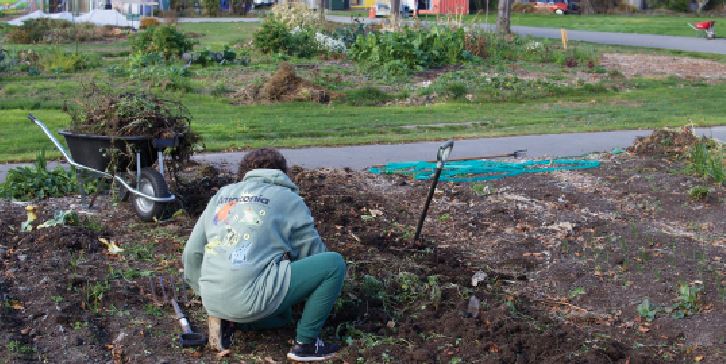
A Christchurch red zone street will soon echo with bird song and the buzz of pollinating insects as plans to create New Zealand’s first “Pollination Street” get under way.
Cowlishaw St in Avonside has been overgrown with ivy since all but one house on the street was demolished following the earthquakes.

The environment won’t be the only winner though - the project also aims to educate and empower children who visit the Climate Action Campus.
Buck started the school after she chaired a hearing on the city council climate plan in 2018.
The meeting heard a group of eight to 12-year-olds speak about how their future had been stolen by generations before them.
“I completely agree with them,” she said.
The campus is believed to be the first of its kind in Australasia and was started as part of central city special character school Ao Tawhiti Unlimited Discovery.
It now works with more than 20 schools, providing environmental education and hands-on learning to young people.
Buck wants the project to educate people about the importance of pollinators.
“We want to explore the concept of pollinators and how important they are, and then we want to work with the kids to share that so it can be an educational experience,” she said.
The project aims to attract a wide range of pollinating species and will take two to three years to complete.
“Bees get all the credit, but there’s all sorts of pollinating birds and insects,” she said.
The council has supported the project.
Community partnerships ranger Sarah Mankelow said wild pollinators, such as native bees and hoverflies, often go unnoticed. However, they play a very important role in our ecosystem.
“A better understanding and the promotion of wild pollinators in Christchurch benefits our biodiversity, food, gardens and native plants – the whole ecosystem,” she said.
Many businesses have contributed to the project by donating soil, plants and services.
“What I love about Christchurch is that as soon as you reach out, there are so many amazing people and groups to work with,” said Buck.
Landscape designer Michelle Cummins donated her time to draw up a plan for the street’s planting.
She said a wide range of pollinating plant species, such as wildflowers, natives, vegetables and herbs, will attract different pollinators all year.
“Nature works as a team and every plant, bug, bird and bee is a valuable part,” Cummins said.
Pollination Street is just one of Climate Action Campus’ many ventures.
Buck is working on establishing a solar farm and food forests to service communities in need.
She also wants to open a native plant nursery on the tennis court of a former school, set up a facility to reuse building waste products in the community and more.
“I find climate change both terrifying, but also full of opportunities.”
Buck said young people felt great angst about the uncertainty of their futures due to climate change, and the best way to combat that is to take action.
“It doesn’t really matter what the action is, but just taking action is the best way of countering climate anxiety.”













